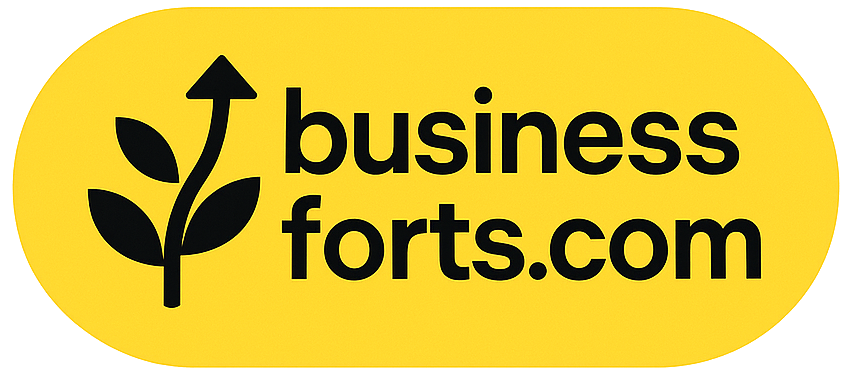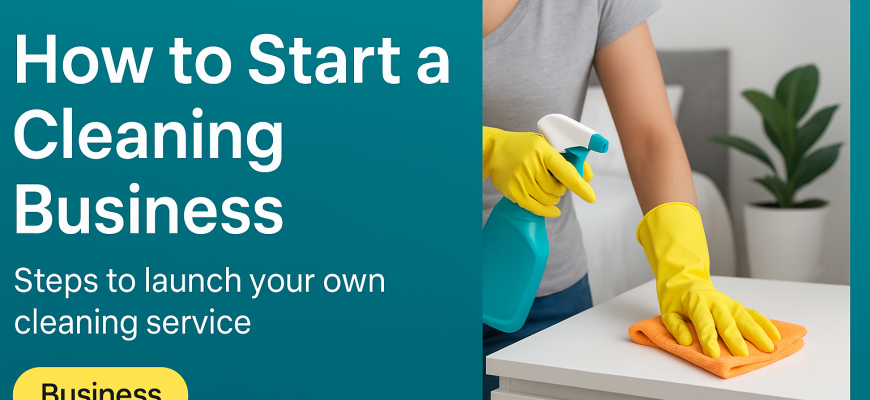Have you ever dreamed of turning your knack for cleaning into a thriving business? For many women, entrepreneurship in the cleaning industry has opened doors to financial independence, flexible lifestyles, and the joy of building something of their own. In fact, this has long been a field where determined women can establish successful companies through excellent service and smart strategies. The good news is that starting a cleaning business offers an incredible opportunity in a high-demand market with relatively low barriers to entry. Whether you plan to serve cozy homes or corporate offices (or both!), and whether you’re starting on a shoestring budget or aiming to launch a premium service, you can make it happen. This guide will inspire you with real examples and walk you through actionable steps to launch and grow a cleaning business that truly shines.
Why a Cleaning Business? Benefits and Opportunities
Consistent Demand and Growth Potential: Homes and workplaces always need cleaning, which means a steady stream of potential clients. Even as a one-woman operation, you can earn a solid income – residential cleaning jobs often pay between $20 and $50 per hour, and landing a commercial contract can bring in thousands per month. With great service, small cleaning businesses can scale up to $50,000-$100,000 per year within the first few years. The demand is there, and it’s growing!
Flexibility for Your Lifestyle: A cleaning business offers tremendous flexibility and independence. You can start part-time, choosing clients and scheduling around your family or other commitments. It’s an ideal option for a busy mom or anyone transitioning to self-employment. Many women begin by cleaning a few homes or offices on evenings and weekends and then expand into full-time once the client base grows. You control how big you grow and how you balance work and life.
Low Startup Barriers: Unlike many industries, you don’t need an expensive degree or massive capital to begin. Basic cleaning skills and a strong work ethic are your foundation. Startup costs can be very low – reports show the average cleaning service launches with around $3,500 in expenses, but plenty of women have started with far less. In fact, if you plan wisely, your initial investment could be under $1,000. You likely already own some of the necessary supplies. This business is accessible on any budget, which makes it especially empowering if you’re resourceful and determined.
A Path for Empowerment: Perhaps one of the most rewarding benefits is the empowerment that comes from running your own enterprise. Many women have proven that with the right moves and mindset, you too can achieve the dream of business ownership in the cleaning field. As your own boss, you set the rules – you can infuse your values into your work, choose who you work with, and create opportunities for others. (Some successful female founders even make it a point to hire and mentor other women, like single moms, as they grow.) The cleaning industry isn’t just about mopping floors; it’s about building something that’s yours and potentially uplifting others along the way.
Residential, Commercial, or Both? Define Your Niche
Choosing a niche is one of the first big decisions. Will you focus on residential clients, commercial clients, or a mix of both? Each path has its own opportunities:
-
Residential Cleaning: Serving homeowners and renters (houses, apartments, condos) often means working in people’s personal spaces. This niche is usually easier to start with – you can begin solo, and jobs might include general house cleaning, deep cleaning, or move-in/move-out services. Residential clients value trustworthiness and a personal touch. For example, Michelle Rohr built her house cleaning service “Simply Clean” around her values of simplicity and organic products, enlisting her sisters as her team and growing quickly through word-of-mouth. Residential cleaning can pay well hourly and can lead to loyal, long-term clients if you become a dependable “part of the family.”
-
Commercial Cleaning: This involves offices, stores, or facilities. Commercial jobs are often larger in scope – think cleaning office suites, retail spaces, or even schools. They can provide steady contracts (e.g. a company might hire you for nightly or weekly cleanings). While commercial cleaning can mean bigger monthly revenues, the competition may be stiffer and the work more structured (often after-hours). You might need specialized equipment or certifications for certain industries (like using floor polishers or complying with health standards in clinics). Don’t be intimidated, though – women are making strides here too. Companies like Sparkly Maid Miami have shown that a memorable brand and attention to detail can win over both homes and offices as clients. If you’re comfortable dealing with business clients and perhaps managing a team as you grow, commercial cleaning is a lucrative arena.
-
Specialty Niches: You can also carve out a niche that sets you apart. Examples include eco-friendly “green” cleaning, carpet and upholstery cleaning, post-construction cleanup, vacation rental cleaning, or organizing services in tandem with cleaning. Specialized services can let you charge premium rates for expertise. As a woman entrepreneur, think about your strengths and passions – maybe you’re great at organization, so you offer decluttering as an add-on; or you care about non-toxic households, so you brand yourself as the eco-conscious cleaner. A niche can be a marketing advantage that helps you stand out from generic cleaning companies.
Can you do both residential and commercial? Absolutely – some businesses start in one area and expand to the other. However, when you’re just launching, it helps to focus on a primary niche so you can tailor your services and marketing clearly. You might begin with homes to build up experience and testimonials, then add a couple of small offices later (or vice versa). The key is to understand the different needs of each segment and ensure you can meet them well.
Budgeting Your Dream: From Shoestring to Premium
One amazing aspect of the cleaning business is that it’s viable at almost any budget. Whether you need to start ultra-lean or you have funds to invest in a premium setup, there’s a path forward for you. Let’s look at how to approach both ends of the spectrum:
Starting on a Shoestring: If you have limited funds, take heart – you can still launch your cleaning venture with minimal costs. Many women begin with just the basics and reinvest earnings as they go. Here are some tips for a low-cost startup:
-
Use what you have: Leverage any supplies and equipment you already own. A good vacuum cleaner, a mop, bucket, microfiber cloths, and all-purpose cleaners from under your sink can form your initial toolkit. You can acquire additional items gradually. (For instance, a high-quality vacuum might cost around $200-$300, but you might find a decent used one for less.)
-
Keep overhead low: Work from home – you don’t need an office space starting out. Save on rent by handling all admin (calls, bookkeeping) from a home office or even your kitchen table. Your vehicle can be your “company van.” Instead of expensive uniforms, start with neat, comfortable clothing in a common color.
-
DIY Branding: Rather than paying for a fancy logo or website immediately, use free or affordable tools. You can design a simple logo online at little cost, print basic business cards cheaply, and create a free social media business page. Many cleaning entrepreneurs start by spreading the word through friends and local community groups, which costs next to nothing.
-
Gradual growth: Accept that in the beginning you might do most tasks yourself – cleaning, customer service, marketing – to save money on hires. That’s okay. As you gain clients and income, you can then invest in better equipment, insurance, or help. Remember, some thriving cleaning businesses began with well under $1,000 in startup costs. It’s possible to start small and let your success fund your expansion.
Investing in a Premium Service: Maybe you have more resources to invest, or you want to position your cleaning business at the high end of the market from day one. A higher budget can open certain opportunities, but it also requires careful planning to get a return on your investment. Here’s how to maximize a premium approach:
-
Professional-grade equipment: Consider purchasing commercial-quality tools if you can afford them. For example, a powerful industrial vacuum, a carpet steam cleaner, or floor buffer can enable you to take on specialized jobs and work more efficiently. Premium clients notice the quality of your tools and will expect top-notch results.
-
Polished branding: Invest in a professional logo, website, and perhaps even vehicle decals or uniforms. A cohesive, polished image helps justify premium rates. When your team shows up in embroidered polo shirts and a branded van, clients immediately sense reliability and quality. (First impressions matter – a tidy, uniformed appearance builds trust) Make sure all your branding elements are consistent and high-quality to signal that yours is a top-tier service.
-
Expanded team and training: With more capital, you might hire and train employees sooner. This can help you accept more clients and larger contracts (especially useful for commercial jobs where a team can clean an office faster than one person). Ensure you provide thorough training so that your premium standards are met every time. Your early hires will become the face of your business along with you.
-
Value-added services: Premium doesn’t just mean expensive – it means extra value. Consider what upscale clients might appreciate. For example, you could offer a satisfaction guarantee, use only eco-friendly products, include small extras like a complimentary aromatherapy room spray after cleaning, or provide home concierge services (watering plants, changing bed linens, etc.). These little touches help justify higher pricing by providing a luxury experience.
-
Be smart with spending: Even with a bigger budget, invest strategically. Not every shiny tool or ad campaign will yield returns. Create a budget plan as part of your business plan. As one industry report notes, spending a lot on insurance and bonding, for instance, is important as you grow (clients feel more secure with fully insured providers). Allocate funds to things that build trust and efficiency, and avoid splurging on unnecessary frills at the start.
Mid-Range and Scaling: Of course, many businesses will fall somewhere between bare-bones and premium. The key is to align your spending with your vision. If you start frugally, you can always scale up your services and pricing later. Conversely, if you start premium, make sure your quality and client experience match the investment. No matter your budget, excellence in service will be the ultimate driver of your success. Delivering value is what creates a sustainable business, whether you’re using second-hand supplies or the latest commercial equipment.
Step-by-Step: Launching Your Cleaning Business
Dreaming is important, but now it’s time for action! Below is a step-by-step roadmap to go from idea to opening day. These steps will help keep you organized and ensure you cover the essentials:
-
Research Your Market: Start by understanding the lay of the land in your area. Who else is offering cleaning services nearby? What do they charge, and what services do they specialize in? Identify gaps you could fill – for example, maybe there’s demand for eco-friendly cleaning or for early-morning office cleaners. Also, research your potential customer base: Are there plenty of dual-income households in need of home cleaning? Big office complexes? Use online tools (even a simple Google search or local Facebook groups) to gauge interest. This research will help you tailor your business to what people actually need.
-
Create a Simple Business Plan: Don’t be intimidated by the term “business plan” – it can be a short, one-page outline. The goal is to map out your ideas so you have a clear direction. Include key points such as:
-
Services and Niche: What exactly will you offer (e.g. weekly house cleaning, office janitorial services, carpet cleaning, etc.)?
-
Target Market: Who are your ideal customers? Perhaps busy professionals for home cleaning, or local medical offices for commercial cleaning.
-
Pricing Strategy: How will you price your services? Hourly, flat rates, package deals? Make sure to stay competitive with local rates while valuing your time.
-
Startup Budget: List your expected expenses (supplies, transportation, registration fees, etc.) and how you’ll cover them. This helps avoid surprises.
Writing this down not only guides you but also comes in handy if you ever seek a small loan or investor. A solid plan keeps you focused and accountable.
-
-
Take Care of the Legal Basics: To operate professionally (and with peace of mind), handle the necessary paperwork early. Register your business name with your state or local authorities and choose a business structure. Many small cleaning businesses start as sole proprietorships or LLCs. An LLC can be a great choice for a growing cleaning business because it protects your personal assets from liability. Also, check if you need any specific licenses or permits in your city. Crucially, get liability insurance – it can be quite affordable at entry-level and will protect you if an accident happens (like an expensive vase breaking during a cleaning). Clients often prefer or even require that you are insured and bonded. While paperwork isn’t the fun part of entrepreneurship, it builds a safe foundation for your future.
-
Equip Yourself: Now for the tangible tools of the trade. Make a checklist of cleaning supplies and equipment you’ll need for your services. For a basic residential cleaning kit, you’ll likely include items like: a vacuum, mop, broom, dusters, microfiber cloths, scrub brushes, bucket, trash bags, and a range of cleaners (glass cleaner, bathroom disinfectant, floor cleaner, etc.). Don’t forget protective gear like gloves, and possibly knee pads or back-support belt if doing lots of physical work. If money is tight, start with the essentials and choose cost-effective options. You can always buy specialized tools later for things like carpet shampooing or window cleaning. Keep your supplies well-organized – it saves time on the job and looks professional to clients when you arrive prepared.
-
Set Your Prices and Services: Deciding how much to charge can be tricky, but remember you deserve fair pay for quality work. Look at the range of local rates you found in your research and position yourself accordingly. When starting out, you might price slightly on the competitive (lower) end to attract customers, but don’t go so low that it undervalues your time and effort. You can offer tiered options: for example, a basic package (standard cleaning), a deep clean package (for a higher rate, including extra tasks like inside appliances or windows), and perhaps add-ons (like refrigerator clean-outs, laundry, etc.). Offering a few packages or bundles can entice clients – e.g. a discount if they book monthly cleanings, or a combined service like “office cleaning + weekly restocking of kitchen supplies” for businesses. Be clear about what’s included in each service level. As you gain experience, you can adjust prices. Tip: It’s often easier to raise rates for new clients over time than to suddenly raise prices on your early clients, so start sustainably. Also, decide on your payment methods (cash, checks, digital payments) and when you expect payment (after each visit, monthly, etc.). Clarity and transparency in pricing builds trust.
-
Build a Brand That Reflects You: Even as you’re setting up the nuts and bolts, start thinking about your brand identity – this is how you will present your business to the world. Choose a business name that is easy to remember and resonates with your service. You might go with something professional like “Prestige Commercial Cleaning Services,” something catchy like “Sparkling Sisters Home Cleaning,” or meaningful like “Green Clean Squad” (which highlights an eco-friendly angle). Ensure the name isn’t already in use and ideally grab a simple website domain to match. Once you have a name, design a logo or hire someone to create one, and decide on colors or a slogan if you like. For example, “Simply Clean – Keeping Life Simple & Fresh!” could be a tagline emphasizing ease and purity. As a female entrepreneur, don’t be afraid to infuse your personality or values into your brand – that authenticity can attract customers who connect with your story. Think about what you want people to associate with your company: reliability, friendliness, meticulousness, eco-consciousness, etc., and make sure your branding conveys that. And remember, consistency is key. Use the same name, logo, and color scheme across your website, social media, business cards, and even your attire, so people start to recognize and trust your brand.
-
Spread the Word – Marketing 101: With the groundwork laid, it’s time to get clients! Marketing can sound intimidating, but at its core it means connecting with your potential customers. Start with the free and simple avenues:
-
Create a basic website or Facebook business page that lists your services, prices, and contact info. (Many clients will look online first – a web presence makes you look legitimate.) Include any nice photos of cleaning work or even stock images that fit your brand. Make sure to highlight that you are a woman-owned business if that is something you want to showcase.
-
Set up a Google My Business profile so your business appears in local search results and Google Maps. This is crucial for local services – when someone searches “house cleaner near me,” you want to show up!
-
Leverage social media and community networks. Post on neighborhood groups (Nextdoor, local Facebook groups) introducing your services. You can share cleaning tips or before-and-after photos of your work to draw interest. Instagram or TikTok can even be platforms to showcase satisfying cleaning transformations – and it’s free advertising.
-
Good old-fashioned flyers and cards still work too. You can distribute flyers in target neighborhoods or leave business cards at local businesses that cater to your audience (for example, a real estate office might pass your card to new homeowners). Libraries, community centers, and coffee shops often have bulletin boards for local business flyers.
-
Network and ask for referrals: Tell friends, family, former coworkers, the parents at school – everyone – that you’ve started a cleaning business. Often, your first clients will come from people you know or referrals they give. Do an excellent job for them, and then kindly ask if they know anyone else who might need your services. Incentivize referrals by offering a discount or thank-you bonus for each new client someone refers. Personal recommendations build credibility faster than any ad.
-
Consider a promotion to kickstart your business – for example, a “New Client Special” (like 20% off the first cleaning, or a free add-on service for first-time customers). This can encourage people to give you a try. Just be careful to still cover your costs; the goal is to win loyal repeat clients, not to work for free.
For those with a marketing budget, targeted online ads (like Facebook or Google ads aimed at your town) can amplify your reach. One cleaning entrepreneur famously scaled her company through effective Facebook advertising, showing that social media can be powerful. Also, ensure your website (if you have one) has the option for online inquiries or booking – a convenient online booking system helped one cleaning company nearly double their client leads. The easier you make it for clients to find you and hire you, the faster your business will grow.
-
-
Deliver Excellence and Build Reputation: Marketing might get you the first clients, but great service keeps them. From day one, focus on delivering the best cleaning experience possible. This means doing a thorough job, being reliable (show up on time, consistently), and communicating professionally. Little things go a long way: remembering a client’s birthday or favorite cleaning fragrance, sending a quick follow-up message to ensure they were satisfied, or leaving a small thank-you note after a job. Happy clients will not only rehire you, but they’ll spread the word. Early on, positive reviews and word-of-mouth are gold. If a customer is pleased, don’t be shy to kindly ask for a short review on your Google or Facebook page. These testimonials will help you win over future clients. On the flip side, if you encounter a snag (maybe an accident or a complaint), handle it with grace and professionalism. How you fix a problem can impress clients even more than when things go smoothly. By building a reputation for quality and trustworthiness, you’re laying the foundation for a business that can last for years.
Following these steps will guide you from the spark of an idea to the reality of your own cleaning business. Take it one step at a time, and remember to celebrate each milestone – from registering your business to landing your first paying client. You’re not just starting a business; you’re launching a new chapter in your life!
Branding and Marketing Tips to Stand Out
As a woman building a cleaning business, your brand and marketing strategy can set you apart and speak directly to the clients you want to serve. Here are some tailored tips to help you shine:
Embrace Your Unique Story: Your personal journey and values are a powerful branding asset. Maybe you’re a mom who understands the chaos of a family home and you brand yourself as bringing “a mom’s touch” to your cleaning. Or perhaps you left the corporate world to start this business for a better work-life balance – share that vision of balance and quality of life. Clients often choose small businesses based on the story and passion of the owner. Don’t hesitate to let your “why” shine through your brand messaging. It’s an authentic touch that big impersonal companies can’t replicate.
Create a Memorable Identity: Effective branding helps customers remember you in a crowded market. Choose a name, logo, and even a tagline that are professional but also a bit personal. Many women-owned cleaning businesses use fun, empowering names (e.g., “Maid in Manhattan” for location-based charm or “The Tidy Tribe” to imply community). If your brand has a feminine flair and that appeals to your target market, that’s great – just ensure it also signals quality and trust. For instance, Katie Pearse’s Green Clean Squad succeeded in part due to a catchy name and a unique marketing approach, which helped it grow to over 200 clients and $115,000 in monthly revenue. Aim for a name or tagline that hints at your service quality or specialization (like Sparkly, Green, Pristine, Mighty, etc.) so it sticks in people’s minds.
Professionalism builds trust: While you want to be approachable, professional presentation is key in the cleaning industry. Remember, people are trusting you with their homes and workplaces. Maintain high standards for appearance and conduct. Simple things like wearing a clean uniform or tidy outfit and keeping your equipment clean can significantly boost clients’ confidence in you Angela Brown, a cleaning industry expert, even advises consistent “clean” grooming standards for staff (like hair neatly pulled back) as part of the company’s brand of professionalism You represent your brand every time you interact with clients, so make that impression count.
Leverage Social Proof and Testimonials: Women entrepreneurs sometimes feel hesitant to toot their own horn, but remember that showcasing your good work is part of marketing. Feature testimonials from happy clients on your website or flyers. Before-and-after photos (with permission) can demonstrate your quality. If you have certifications (say, for green cleaning or as a woman-owned business enterprise), display those badges proudly. People are naturally more inclined to trust a service that others have vetted and praised.
Connect with Your Community: As a local service business, community connections are your marketing goldmine. Attend local women’s networking events or small business meet-ups – you might find mentors, supporters, or referral partners. Perhaps partner with a local realtor or home organizer: you can refer clients to each other. Engaging in community initiatives (sponsoring a charity cleanup day, or offering a free service to a community center) can both do good and raise your business profile. Additionally, don’t underestimate the power of women’s networks. Many towns have Facebook groups or associations for women entrepreneurs or mompreneurs; being active in those can lead to client referrals and support. Building genuine relationships in your community will organically grow your brand reputation.
Targeted Marketing to Women Clients: If a large portion of your clientele is women (e.g. moms hiring for house cleaning, or female office managers hiring commercial cleaners), tailor your marketing to what matters to them. Highlight aspects like safety, trust, and reliability. For example, emphasize that you are insured and meticulous about security (clients will appreciate knowing that you’re careful with keys or alarm codes). Use language in your ads that addresses their pain points: “Spend more time with your family – let us handle the cleaning,” or “A cleaning service you can trust, by women for women.” Show empathy for their busy lives and position your service as a solution that brings peace of mind.
Consistent Branding Everywhere: Ensure that your branding (your business name, logo, colors, and tone of voice) is consistent across all platforms and materials Consistency breeds familiarity, and familiarity breeds trust If you use a cheerful, encouraging tone on your social media, carry that through to your emails and even how you talk to clients. If your logo is bright and modern, perhaps your uniform shirt is in the same color family. Over time, people will recognize your brand at a glance, which is exactly what you want.
By focusing on branding and marketing that resonate with both your values and your clients’ needs, you’ll create not just a business, but a brand that people remember and recommend. Marketing isn’t about boasting; it’s about telling the story of how your service can improve others’ lives. And who better to tell that story than you, the passionate woman behind the brand?
Empowerment and Growth: You’ve Got This!
Starting any business has its challenges, but remember: you are capable of greatness. The cleaning industry is filled with women who started exactly where you are and went on to achieve incredible success by working hard, working smart, and believing in themselves. You’ve already taken the bold step of considering entrepreneurship – that takes courage and vision.
As you embark on this journey, keep these empowering thoughts in mind:
-
Believe in Your Vision: There may be days when juggling clients, family, and finances feels tough. In those moments, revisit why you started. Picture the independence you’re creating, the clients you’re helping, and possibly the women you’ll inspire or employ in the future. Your vision can carry you through obstacles. As the saying goes, “She believed she could, so she did.”
-
Learn and Adapt: You don’t have to know everything on day one. Every experience – even the mistakes – will teach you how to improve your business. Maybe a particular marketing flyer didn’t get responses, or you underquoted a job and worked longer than expected. It’s okay. Adjust your strategies and keep moving forward. Successful entrepreneurs are always learning. Seek out books, podcasts, or local business workshops (many cities have small business centers with free resources). The more you learn, the more confident and capable you’ll become.
-
Find Your Tribe: Connect with other women entrepreneurs for support. They might be in cleaning or in other industries, but shared experiences create a support system. Having someone to brainstorm with or just vent to can make a huge difference. If you don’t know anyone personally, consider joining online communities or forums for female entrepreneurs or cleaning business owners. You’ll find that many are eager to share advice and cheer you on. No one succeeds alone – and you don’t have to.
-
Celebrate Small Wins: Don’t wait until you hit some “big” definition of success to acknowledge your achievements. Landed your first client? Awesome – that’s a victory. Completed your 100th job? Take pride in that track record. Received a glowing review? That’s worth celebrating! By valuing each step of progress, you keep your motivation high and maintain a positive mindset. Confidence is built one win at a time.
-
Empower Others as You Grow: One beautiful aspect of women-led businesses is the tendency to lift others up. As you find success, consider how you can pay it forward. It might be as simple as sharing advice with another new female entrepreneur or as impactful as eventually hiring women who need a second chance or flexible work. Some cleaning business owners make it part of their mission to hire single mothers or women who have overcome hardships, and even mentor them to become entrepreneurs themselves. Imagine, your journey could spark a chain reaction of empowered women in your community!
In the end, starting a cleaning business is more than just a way to earn money – it’s an opportunity to design the life you want and make a difference on your own terms. You are entering an industry where women have been breaking barriers and thriving, from small-town startups to multi-city enterprises. If they can do it, so can you.
Now take a deep breath, envision that success, and step forward. Your cleaning business dream is within reach. With each home you brighten or office you refresh, you’re not just cleaning spaces – you’re carving out your own success story. Go ahead and make it sparkle. You’ve got this!









